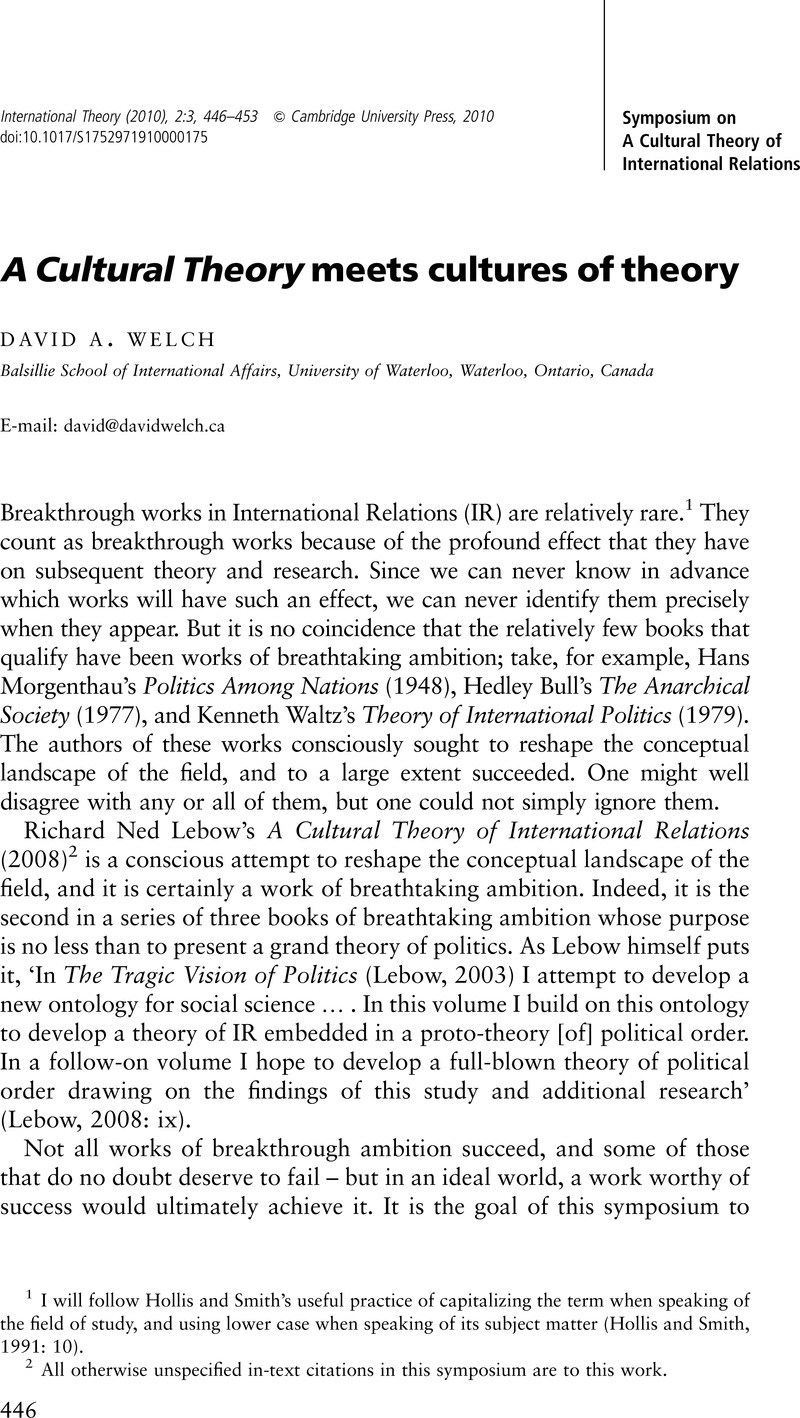Crossref Citations
This article has been cited by the following publications. This list is generated based on data provided by Crossref.
Connolly, Chris
and
Gottwald, Jörn‐Carsten
2013.
The Long Quest for an International Order with Chinese Characteristics: A Cultural Perspective on Modern China's Foreign Policies.
Pacific Focus,
Vol. 28,
Issue. 2,
p.
269.
Browning, Christopher S.
2015.
Nation Branding, National Self-Esteem, and the Constitution of Subjectivity in Late Modernity.
Foreign Policy Analysis,
Vol. 11,
Issue. 2,
p.
195.
Müller, Harald
2017.
Richard Ned Lebow: A Pioneer in International Relations Theory, History, Political Philosophy and Psychology.
Vol. 2,
Issue. ,
p.
55.



